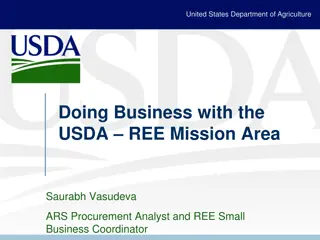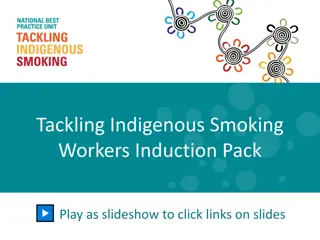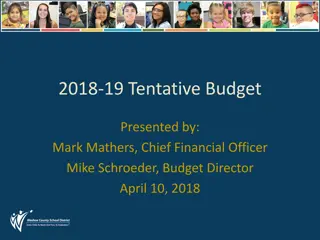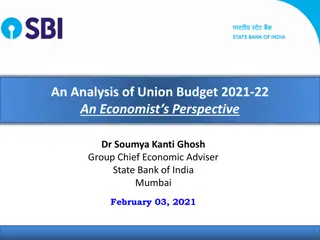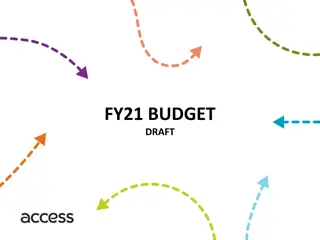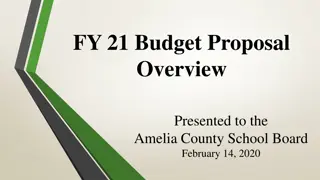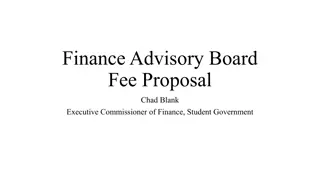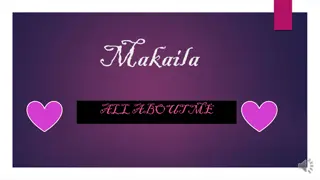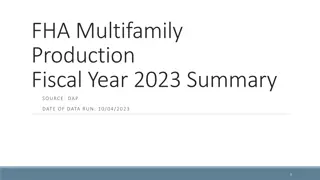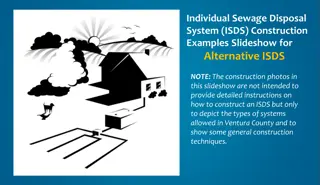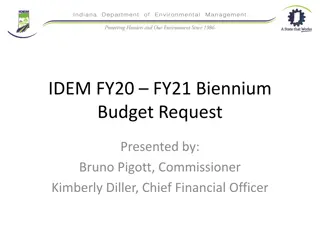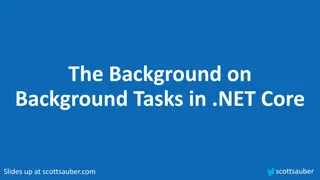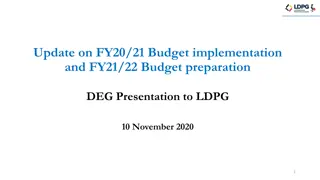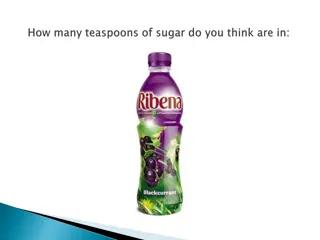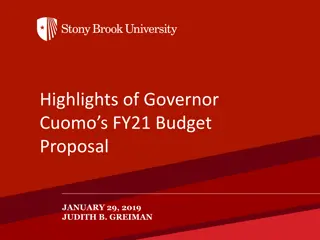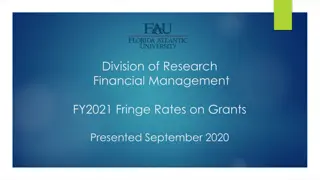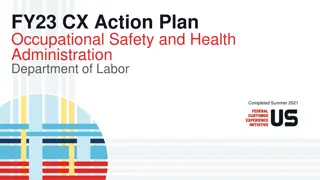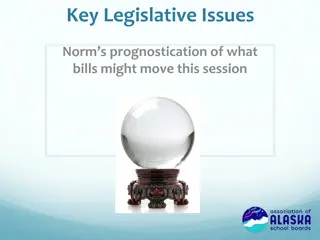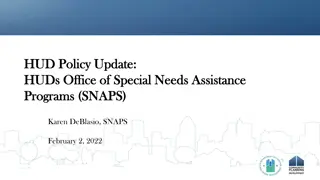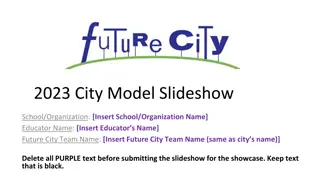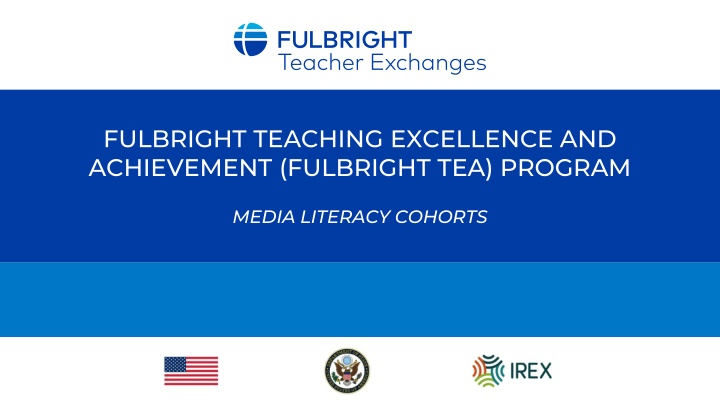
Fulbright TEA Program - Media Literacy Cohort Overview
The Fulbright Teaching Excellence and Achievement (TEA) Program offers a six-week non-credit professional development opportunity focused on media literacy at a U.S. university. Educators receive training, field experience in U.S. schools, exchange best practices, and engage in specialized coursework. Approximately 44 international secondary school teachers benefit from this program to enhance their media literacy expertise.
Download Presentation

Please find below an Image/Link to download the presentation.
The content on the website is provided AS IS for your information and personal use only. It may not be sold, licensed, or shared on other websites without obtaining consent from the author. If you encounter any issues during the download, it is possible that the publisher has removed the file from their server.
You are allowed to download the files provided on this website for personal or commercial use, subject to the condition that they are used lawfully. All files are the property of their respective owners.
The content on the website is provided AS IS for your information and personal use only. It may not be sold, licensed, or shared on other websites without obtaining consent from the author.
E N D
Presentation Transcript
FULBRIGHT TEACHING EXCELLENCE AND ACHIEVEMENT (FULBRIGHT TEA) PROGRAM MEDIA LITERACY COHORTS
Agenda Agenda Participating Organizations Fulbright TEA Media Literacy Cohort Overview Program Eligibility Requirements and Participating Countries Program Provisions and Regulations Selection Process and Criteria Program Details 1 3 4 5
Participating Organizations Participating Organizations 1) The Bureau of Educational and Cultural Affairs (ECA) of the U.S. Department of State 1) The Bureau of Educational and Cultural Affairs (ECA) of the U.S. Department of State Sponsors the program with funding provided by the U.S. Government Provides oversight of implementation of all aspects of the program Collaborates with IREX, U.S. Embassies, and Fulbright Commissions to select program participants 2) IREX 2) IREX Collaborates with ECA, U.S. Embassies, Fulbright Commissions, and U.S. Host Universities to administer the Fulbright TEA Program Media Literacy Cohorts Conducts all aspects of monitoring and evaluation, provides participant support during the program, and administers U.S.-based aspects of the program Manages alumni programming
Participating Organizations Participating Organizations 3) U.S. Embassies and/or Fulbright Commissions 3) U.S. Embassies and/or Fulbright Commissions Manage recruitment and conduct candidate interviews Conduct pre-departure orientation Engage with alumni U.S. Embassy and/or Fulbright Commission Contact U.S. Embassy and/or Fulbright Commission Contact Name: Name: Kristyna Kristyna Dzmuranova Dzmuranova Title: Title: Program Program Officer Officer Email Email: dzmuranova@fulbright.cz Phone Phone: +420 770 138 822
Fulbright TEA Program Fulbright TEA Program Media Literacy Cohort Overview Media Literacy Cohort Overview The Fulbright TEA Program Media Literacy Cohort is a six The Fulbright TEA Program Media Literacy Cohort is a six- -week non non non- -credit professional development program based at a U.S. university. credit professional development program based at a U.S. university. week non- -degree, degree, The Fulbright TEA Media Literacy Cohort includes: The Fulbright TEA Media Literacy Cohort includes: Educator Training Field Experience in U.S. Schools Exchange of Best Practices in Teaching Specialized Coursework focused on media literacy Civic and Cultural Activities
Fulbright TEA Program Media Literacy Cohort Fulbright TEA Program Media Literacy Cohort Overview Overview The Fulbright TEA Program Media Literacy Cohort: The Fulbright TEA Program Media Literacy Cohort: Provides approximately 44 international secondary school teachers with professional development to enhance their expertise in the field of media literacy and provide them with a deeper understanding of best practices in education. Contributes to improving education in participating countries and communities by preparing participants to serve as even stronger educational leaders who are equipped to apply and share their experience and skills with their colleagues and students upon returning home. Promotes mutual understanding between educators, participants schools, and communities in the United States and abroad.
Program Eligibility Requirements Program Eligibility Requirements Applicants must: Applicants must: Be full-time, secondary-level teachers of English, English as a Foreign Language (EFL), social studies, civics, history, global studies, media studies, communications, journalism, law, math, science, or related fields at institutions serving primarily a local population are eligible for the program Have earned a Bachelor s degree or equivalent education and experience; Have three or more years of full-time teaching experience; Be citizen of and resident in the Czech Republic; Earn a minimum score of 500 on the paper-based TOEFL or 61 on the internet-based TOEFL; Have experience or interest in the field of media literacy and critical thinking; Demonstrate a commitment to continue teaching after completion of the program; Submit a complete application.
Fulbright TEA Program Media Literacy Cohort Fulbright TEA Program Media Literacy Cohort Participating Countries Participating Countries Albania Azerbaijan Bosnia-Herzegovina Bulgaria Czech Republic Estonia Hungary Kazakhstan Kosovo Kyrgyzstan Lithuania North Macedonia Poland Romania Serbia Slovakia Tajikistan Turkey Ukraine Uzbekistan
Program Provisions Program Provisions The fellowship provides: The fellowship provides: J-1 visa support A Pre-Departure Orientation (PDO) held in participant s home country Round-trip airfare to and within the U.S. A Welcome Orientation and End-of-Program Workshop Academic program fees Housing and meals Accident and sickness medical coverage Transportation to local schools (as needed) A daily allowance for incidentals during the university academic program Travel allowance Opportunity to engage in alumni activities
Program Specific Regulations Program Specific Regulations All program participants receive a J-1 visa. J-1 visa has a 30-day grace period for return travel, after end of the program. Note that in the event of a local or national emergency in the United States or abroad, ECA and IREX may determine that personal travel is not feasible at the end of the Fulbright TEA Program, and will ask you to return home as quickly as possible. Program participants must return to their home countries for at least two years upon completion of the program, as stipulated by laws governing the J-1 visa. J-1 visa does not allow for paid employment during the program. Dependents may not join participants on program. No visa transfers or extensions will be given.
Fulbright Selection Process Fulbright Selection Process Selection is made through a merit-based open competition. All applications are first reviewed for technical eligibility. The top candidates complete language testing and are interviewed by an interview panel. An external expert committee in Washington, DC reviews all nominations. The Fulbright Foreign Scholarship Board (FFSB) makes the final selection of Fulbright Teachers. The FFSB is an independent, presidentially appointed board that has oversight responsibility for all Fulbright academic exchange programs.
Selection Criteria Selection Criteria Demonstrated commitment to secondary education; Demonstrated leadership potential; Professional and educational experience and achievements; Potential for developing long-term linkages between U.S. and home country educational institutions and schools; Preparedness (including maturity, flexibility, and ability to function independently) for an intensive U.S. based training program; Willingness and capacity to work and live with international peers to foster a positive learning community for professional development; Articulated ideas for applying program experience to improving secondary education in home country upon return; Ability to express ideas clearly and effectively; English language skills adequate to manage coursework, develop lesson plans, and team- teach in U.S. schools.
Selection Criteria Selection Criteria Must have demonstrated interest in the field of media literacy and critical thinking Show evidence of leadership in their schools or districts Sufficient oral and written English language skills to take part in specialized seminars and give presentations and co- teach in U.S. schools
Selection Criteria Selection Criteria Preference will be given to applicants who: Preference will be given to applicants who: Are members of or who work with students from under-served communities and traditionally underrepresented groups, including women, racial, ethnic and religious minorities, people with disabilities, and the LGBTI community, people from under- represented areas of the country Have had few or no opportunities to travel to the U.S. Have not previously received a Fulbright teacher grant. Have not had substantial recent experience in the U.S. or other Western countries for professional development during the past eight years. Current teachers of the English Access Micro scholarship program
Academic Program Overview Academic Program Overview Customized General Academic Seminars Customized General Academic Seminars Focused on general education topics such as: Student-centered teaching methodologies Content-based instruction Project-based learning Infusing thematic topics into curriculum Lesson planning Instructional technology Classroom management Student assessment Differentiated instruction Teacher leadership
Academic Program Overview Academic Program Overview Specialized Academic Seminars Specialized Academic Seminars Focused on topics related to classroom media literacy, such as: Recognizing bias/propaganda, stereotypes, and misinformation; Strategies for improving students critical thinking, analytical, and communication skills; How media literacy promotes civic engagement/the role of media in democratic societies; and Fostering cyber safety and digital citizenship in the classroom.
U.S. School Placements U.S. School Placements Fulbright teachers take part in a field experience opportunity at a Fulbright teachers take part in a field experience opportunity at a local U.S. secondary school, during which they: local U.S. secondary school, during which they: Engage and co-teach with a U.S. partner educator Explore the U.S. education system Share expertise with U.S. partner school teachers and administrators Participate in extracurricular and staff professional development activities as feasible Build a relationship with a U.S. educator and exchange and discuss teaching practices and school environments
For more information about Fulbright TEA Program Media Literacy Cohorts please contact Kristyna Dzmuranova, J. W. Fulbright Commission in Prague, at dzmuranova@fulbright.cz or IREX at fulbrighttea@irex.org We look forward to receiving your application!

